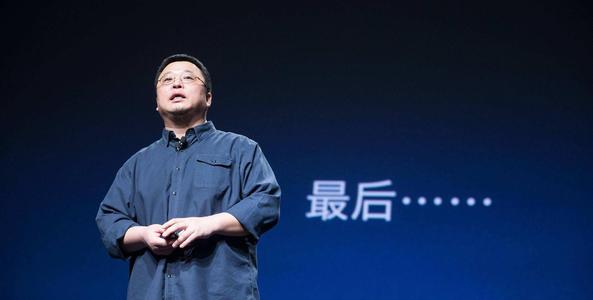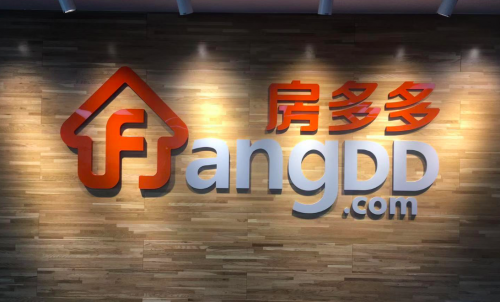How You Can Use Your Computer Password to Make Your Aspirations a Reality

Last summer, New York became only the 11th state in the nation not to apply a sales tax to sanitary products like pads and tampons. But even without the tax, buying feminine hygiene products over the course of a lifetime can be a costly necessity.
Alex Friedman and Jordana Kier are the co-founders of Lola , a company that makes organic cotton tampons and pads and delivers them right to your door. They believe that since women are paying for these products for their health -- every month for decades of their lives -- they deserve to know what exactly they are spending their money on.
“When we think about why we started this in the first place, we wanted to create a business that speaks to women about topics that have flown under the radar,” says Kier. “We want to to build awareness and share a vision of a holistic reproductive health and wellness brand.”
The pair met in 2014 after being introduced by a mutual friend. Over get-to-know-you drinks, they started wondering about what exactly was in a tampon. The conversation is at the core of LOLA’s mission -- simple, organic ingredients and the expectation of transparency.
Since launching in 2015, the company has raised $11.2 million and launched an initiative called Lola Gives Back which donates feminine care products to women in need. There are 400,000 products on track to be donated by the end of the year.
We caught up with Friedman and Kier to ask them 20 Question and p out what makes them tick.
1.您如何开始新的一天?
AF: I make coffee and eat breakfast at home. I do stretches, and I typically have time to read through news headlines -- usually from The New York Times and Twitter. I start that way because I need a coffee to start the day and I like to be informed before I step out of my apartment. I like to be prepared for whatever the day will throw at me, so I spend time each morning both reviewing LOLA's key metrics as well as taking a quick scan of the news. I often I see something in our data, customer inquiries, or even news events that has an impact on how I prioritize my morning activities.
JK:I like to watch CBS This Morning and then I'll walk my dog. I go to dog park, I see my other dog owner friends. Going for a 30 minute walk every morning helps me clear my head, think about what's important to accomplish for the day at a high level, stay present, and find perspective. It's actually pretty refreshing even in the winter.
2.你如何结束你的一天?
AF: Several days a week, I like to go for a quick swim. I like to get moving at the end of the day, especially after spending all day sitting in an office.I also find it relaxing to be in the water, away from all of my digital devices, completely focused on one thing. I started swimming regularly about four years ago when I was in between jobs and trying to kickstart some good new workout habits.
JK: I try to do yoga two to three times a week. I discovered yoga after graduating from college and found that the combination of physical exercise and mental meditation was an amazing way to release any physical or mental residue from the day. So I try as much as possible to get onto the mat whenever I can.
3.是什么书改变了你的想法,为什么?
AF: The Hard Thing About Hard Things by Ben Horowitz. It's about decision-making and being a leader. Before I read the book, I always had this idea that even executives who have run a lot of companies made decisions really easily and that they always knew what they were doing. It was interesting see that somebody who is 20, 30, 40 years ahead of me in their career is still learning every day.
JK: Delivering Happiness by Tony Hsieh. It seems like such an obvious strategy, but you can’t build a scalable business without customer satisfaction. We make it a point that everything that we do connects back to how the customer would feel. So thinking about delivering that incredible experience first and foremost in everything you do, that’s a priority for us.
4.你总是推荐什么书,为什么?
AF: One Hundred Years of Solitude by Gabriel Garcia Marquez. It's a multi-generational story of a family in an imaginary town in Colombia. I like that it hits on the realities of life and family and love. 58003 It makes you realize that some of what you experience is life objective -- everyone experiencing the same things. Other things are subjective, and you experience things as an inpidual.
JK: Here I Am by Jonathan Safran Foer. The book is about a family and multiple generations. It has a lot of interesting discussions and explorations around identity. It's a very nuanced and unique family unit but everybody can relate to the story. And it's very funny.
5.保持专注的策略是什么?
AF: Regular conversation to realign our goals is something that we’ve instituted in the business. 58003 It is part of our role as founders: to continue to rearticulate the mission, the strategy and what we’re aiming for at the end of the day.
JK: It’s always asking the question, ‘does this initiative align with our key goals?’ Having a filter with which to prioritize things. As a small business you can get pulled every which way, so it’s figuring out and whittling down the things that actually drive impact and make sure the entire team is on board with those decisions.
6.当你还是个孩子的时候,你长大后想成为什么样的人?
AF: I wanted to be a cartoonist. I spent a lot of time as a kid doing arts and crafts. loved to draw, and I started buying books that were all about being a cartoonist 101 and about drawing comics. Eventually, I created my own series of characters and made my own comic book. .
JK: I grew up playing the piano and always loved classical music. I wanted to play Lincoln Center from when I was a little kid.
7.你从你有过的最糟糕的老板那里学到了什么?
AF: I learned how important it is to advocate for your team and making sure they are productive, happy and in a position for personal growth and success. I had an experience where that wasn’t the case.
JK: Stand up for your team. It’s not about you -- not about the boss. The company that you’re trying to build is way bigger than one person. Always ensure you are thinking about the team, the brand and the customers first -- not yourself.
8.当谈到你如何对待你的工作时,谁对你影响最大?
AF: My first boss. I worked for her right out of college. I saw her build her company into a much bigger business and working with a partner and co-founder in order to grow it. She was selling, executing, managing and that always inspired me.
JK: 我爸爸。 He is just a relentless, tireless worker. My grandparents and my dad were born in Cuba and then emigrated to the United States in the 1960s.
My dad has been part of this American dream story of running a business, building it into something incredible. He's 55 and still tells me stories about how he called people up numerous times a day to get them on the phone. He showed that you should never stop trying your hardest and giving it your all -- and never accepting no as an answer. It is something I hope to emulate well into my 60s
9.什么旅行改变了你?
AF: I went to Italy for four weeks by myself right after I graduated from grad school in 2011. I always learn things about myself when I travel alone -- like how adept I am at navigating a new place, how comfortable I am in certain situations, how much time I want to spend in a day meeting people versus being on my own.
JK: The first time I went to Cuba with my grandparents. Just seeing their lives that were uprooted and the businesses that were taken away. And the dire need to make sure they would give their kids a better life, which meant leaving everything they knew and starting completely from scratch. It was viscerally life changing.
10.什么激励了你?
AF: Seeing people act with conviction is inspiring to me, because it’s one of the biggest challenges of running a business.
JK: I would say our customers. They are so vocal and passionate. They are brutally honest, so they share what they love about our brand, but they also say what they want improved or what they want next. The worst thing we could have is indifference. Feeling the passion -- that’s awesome to me and very inspiring.
11.你的第一个商业想法是什么?你用它做了什么?
JK: 就是这样。
AF: There were a lot of lemonade stands but this is the one. This is our first business idea, so everything is a first. You’re not really prepared for anything that comes. 58003 It’s been one of the most exciting experiences of our lives. Everythings comes with challenges, but it’s all worth it.
12.什么是早期的工作教会了你一些重要或有用的东西?
AF: I spent a lot of my teenage years babysitting around my neigborhood. It was the first time I was responsible for somebody else and the first time I was making money and managing my money.
JK: I was a camp counselor in high school. Up early, home late, making $10 an hour to handle other people’s kids. I learned the value of money and that you have to keep on working extremely hard to make that money.
13.你接受过的最好的建议是什么?
AF: The best piece of advice I’ve taken was when I was trying to decide whether to leave my safe, comfortable job and make something out of nothing. My husband said obviously you’re passionate about this, it seems like a great idea and you two are the right people do it. That helped me get over the hump.
JK: Take all the time you have to make a decision. It sometimes feels like we have to act quickly. 58003 Sit with it, let it marinate. Make sure it is the right call.
14.你得到的最糟糕的建议是什么?
AF: Worry about it later. As a business owner, it’s the worst piece of advice you can get, because you have to make decisions for now and for later. You need to understand how it will impact your business in the long term.
JK: Just hire someone and get them in the position. Hiring is about finding the right people and it takes a lot of time. The idea of just filling up positions with a warm body is the worst advice, because you’ll regret it later. The old adage is really true: hire slow and fire fast. Bringing somebody on to your team impacts your culture and drives your business.
15.你发誓的生产力提示是什么?
AF: Answer decisively whenever possible. We have a lot of different things happening at once. They can spiral into 20, 30, 40 conversations online and in person. The more we are able to answer definitely and end the conversation with an answer, the less roadblocks we have and more productive we are in our daily lives.
JK: 58003
16.您是否以令人惊讶的方式使用应用程序或工具来完成工作或保持正轨?
AF: I set my computer password to be something aspirational, or a reminder to myself. Like eat less candy or do your taxes. If I remind myself often enough it usually happens and then I change my password.
JK: I love The New York Times crossword puzzle app. I’ll be on the subway and read through my news, and I need something more playful but still engaging. The crossword allows me to use my brain productively.
17.工作与生活的平衡对你意味着什么?
AF: It means feeling in control of both my personal and professional life, That can be measured by saying what I want to do a week in advance and then accomplishing that. Of course there are times when the balance gets out of whack, and I spend a lot of time on one. Over the course of time, if I can course correct and am able to balance the aspects of my life, I’m good.
JK: Feeling good about being connected personally and professionally and having a positive perspective. Focusing on the people and things in your life that support you who you want to focus on.
18.你如何防止倦怠?
AF: I need designated breaks. I’m not productive when I spend the entire day going to back-to-back meetings. I make it a point to have a two-hour break in the middle of day where I get my bearings and focus on what’s important. There are always things that can be reprioritized.
JK: No plans Wednesday. Every Wednesday night there are just no plans to be had, and it’s a great break. Now we have no-meetings Wednesday. We may need to meet with vendors, but as far as internal meetings go, we don’t do any on Wednesday, except for one all-hands team meeting. It lets people focus on what they need to work on. 58003
19.当您面临创造力障碍时,您的创新策略是什么?
AF: I’ve found that creativity isn’t something that I can squeeze in between meetings. It has to be a set amount of time that I can be focused.
JK: 58003 I try to move away from it -- take a walk, go to the gym, take a shower. Just do anything else not related to what I’m blocked about.
20.你现在在学什么?
AF: To better articulate what I need, and make it happen. In a world where there is so much going on, I have to p out how to advocate for myself in my own life and to make sure that I have the work-life balance I need.
JK: I’m trying to learn how to meditate. To me meditation is exercising your brain and finding that time -- 10 to 20 minutes every day to give yourself that brainspace.












